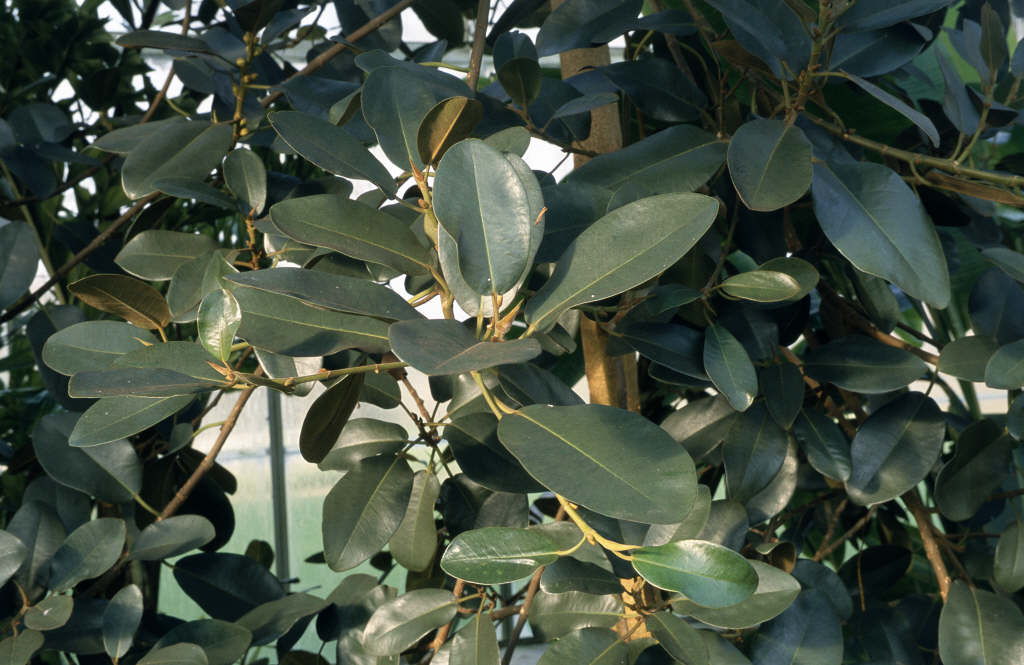Ficus rubiginosa
Port Jackson fig
A large, spreading evergreen tree to 10m in height or more, with leathery dark green, oblong or elliptic leaves to 15cm in length, at first rusty-hairy. Small greenish fruits ripen to greenish-brown
Other common names
Botany Bay figlittle-leaf fig
see moreNew South Wales banyan tree
rusty fig
rusty-leaved fig

Size
Ultimate height
8–12 metresTime to ultimate height
20–50 yearsUltimate spread
Wider than 8 metresGrowing conditions
Moisture
Moist but well–drained, Well–drainedpH
Acid, Alkaline, NeutralColour & scent
| Stem | Flower | Foliage | Fruit | |
| Spring | Green | |||
|---|---|---|---|---|
| Summer | Green | Green | Green | |
| Autumn | Green | Brown Green | ||
| Winter | Green | Brown Green |
Position
- Full sun
- Partial shade
Aspect
South–facing or West–facing or East–facing
Exposure
Sheltered Hardiness
H1BBotanical details
- Family
- Moraceae
- Native to GB / Ireland
- No
- Foliage
- Evergreen
- Habit
- Bushy
- Potentially harmful
- Skin allergen. Wear gloves and other protective equipment when handling
- Genus
Ficus can be evergreen or deciduous trees, shrubs or climbers, with often leathery, simple, entire or lobed leaves and tiny flowers borne within a hollow receptacle which enlarges to form the fruit
- Name status
Correct
- Plant range
- Australia
How to grow
Cultivation
Under glass grow in peat-free, loam-based potting compost with added fine bark chippings in full or filtered light. When in growth water moderately and apply a nitrogen rich fertiliser monthly. Keep just moist in winter. Plants benefit from regular misting and from being stood on a pebble tray, particularly in a warm dry atmosphere. Their main requirement is an even temperature, in winter not below 13°C and without the sharp fluctuations found in so many houses. Avoid draughty situations and keep them away from heater fumes
Propagation
Propagate by seed at 15 - 21°C in spring or by semi-hardwood or leaf-bud cuttings in spring or summer
Suggested planting locations and garden types
- Patio and container plants
- Low Maintenance
Pruning
Pests
May be susceptible to glasshouse red spider mite, thrips, mealybugs and scale insects under glass
Diseases
May be susceptible to honey fungus
Get involved
The Royal Horticultural Society is the UK’s leading gardening charity. We aim to enrich everyone’s life through plants, and make the UK a greener and more beautiful place.